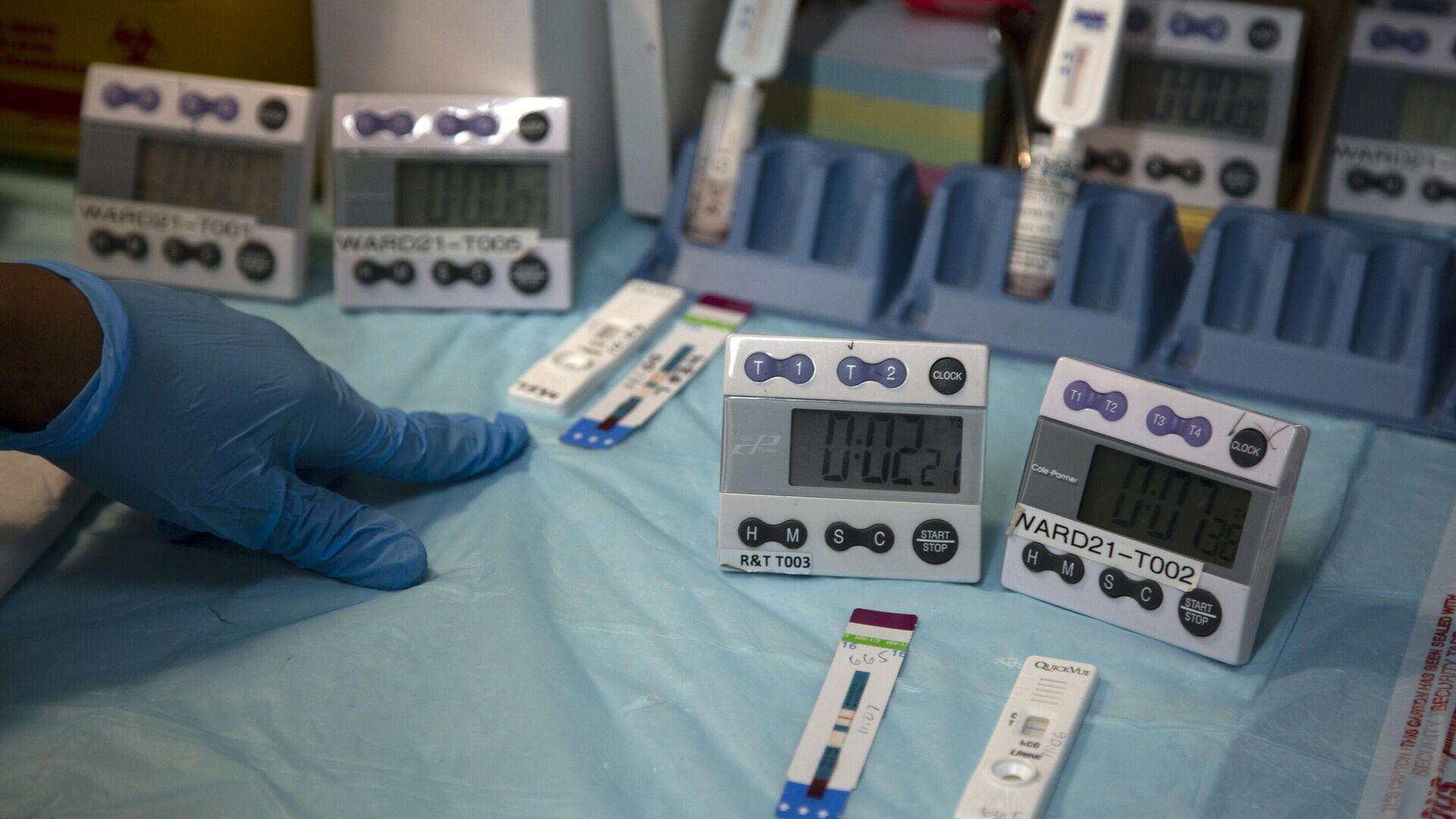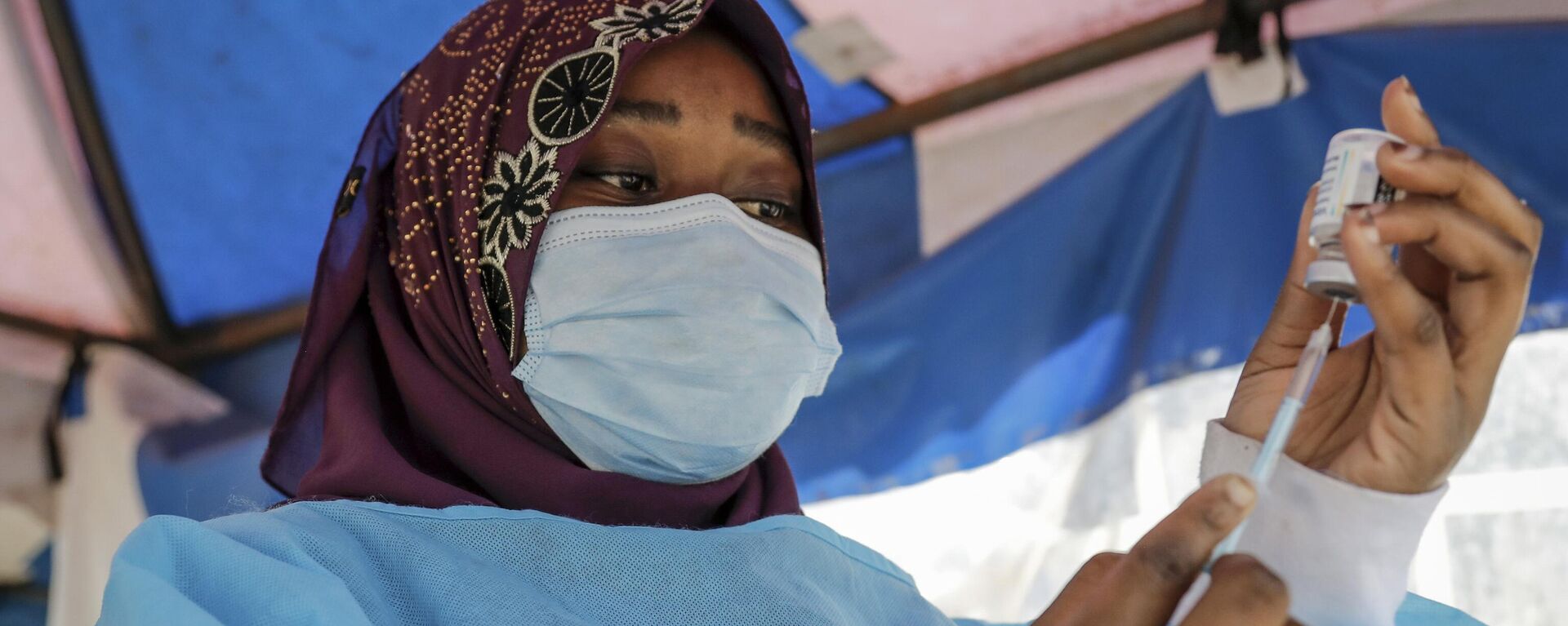https://en.sputniknews.africa/20230519/south-africa-to-produce-hiv-prevention-medication-1059351331.html
South Africa to Produce HIV-Prevention Medication
South Africa to Produce HIV-Prevention Medication
Sputnik Africa
South Africa is poised to become a key manufacturing hub for an affordable version of the groundbreaking HIV-prevention drug CAB-LA (cabotegravir long-acting), reports say.
2023-05-19T16:34+0200
2023-05-19T16:34+0200
2023-05-19T16:34+0200
sub-saharan africa
southern africa
south africa
hiv/aids
medicine
world health organization (who)
healthcare
https://cdn1.img.sputniknews.africa/img/07e7/05/13/1059352976_0:193:2958:1857_1920x0_80_0_0_8ad2548a4d26b90a5a21f2abedf37659.jpg
South Africa is poised to become a manufacturing hub for an affordable version of the groundbreaking HIV-prevention drug CAB-LA (cabotegravir long-acting), reports have indicated.The country will prospectively provide access to the drug to millions of people in a region that accounts for nearly two-thirds of new HIV infections globally, according to the World Health Organization.The medication will be produced by Cipla Limited, a leading Indian multinational pharmaceutical company, at its plants in either Benoni or Durban.The move reflects a growing recognition of the urgent need to address the staggering rates of HIV infection in sub-Saharan Africa, where access to critical medications can be limited by high costs and logistical challenges.Researchers have demonstrated that the medication lowers the likelihood of catching the virus through intercourse and is supposed to stop HIV from entering cells, significantly decreasing the risk of infection. Three companies, Aurobindo, Cipla, and Viatris, inked sublicense agreements in March, according to the drug's creators, Viiv Healthcare and the United Nations-backed public health nonprofit Medicines Patent Pool (MPP), to make the generic version. According to the MPP, the chosen firms will be able to create and provide generic versions in 90 countries "subject to required regulatory approvals being obtained."The MPP also stated that the medication is given as an injection six times a year and is started with a single 600mg (3ml) shot given to an individual two months in a row apart. However, in order to receive it, a person must first have a negative HIV-1 test.
https://en.sputniknews.africa/20230424/world-immunization-week-what-challenges-does-africa-face-1058778341.html
southern africa
south africa
Sputnik Africa
feedback@sputniknews.com
+74956456601
MIA „Rossiya Segodnya“
2023
News
en_EN
Sputnik Africa
feedback@sputniknews.com
+74956456601
MIA „Rossiya Segodnya“
Sputnik Africa
feedback@sputniknews.com
+74956456601
MIA „Rossiya Segodnya“
in 2022, the world health organization, world health organization, the who, hiv-prevention drug, hiv-prevention, cab-la, risk of, hiv infection, viiv healthcare, south africa, till 2031, southern africa, medicines patent pool, generic version, according to, the mpp, generic versions, in 90 countries, regulatory approvals, negative hiv-1 test, negative hiv test, hiv-1 test, hiv test, negative test
in 2022, the world health organization, world health organization, the who, hiv-prevention drug, hiv-prevention, cab-la, risk of, hiv infection, viiv healthcare, south africa, till 2031, southern africa, medicines patent pool, generic version, according to, the mpp, generic versions, in 90 countries, regulatory approvals, negative hiv-1 test, negative hiv test, hiv-1 test, hiv test, negative test
South Africa to Produce HIV-Prevention Medication
The World Health Organization (WHO) characterized HIV-prevention drug CAB-LA as a "safe and highly effective prevention option for people at substantial risk of HIV infection" in 2022. One of the medicine's creators, ViiV Healthcare has the patent on CAB-LA in South Africa until 2031, which limits competition.
South Africa is poised to become a manufacturing hub for an affordable version of the groundbreaking HIV-prevention drug CAB-LA (cabotegravir long-acting), reports have indicated.
The country will prospectively provide access to the drug to millions of people in a region that
accounts for nearly two-thirds of new HIV infections globally, according to the World Health Organization.
The medication will be produced by Cipla Limited, a leading Indian multinational pharmaceutical company, at its plants in either Benoni or Durban.
The move reflects a growing recognition of the urgent need to address the staggering rates of HIV infection in sub-Saharan Africa, where access to critical medications can be limited by high costs and logistical challenges.
Researchers have
demonstrated that the medication lowers the likelihood of catching the virus through intercourse and is supposed to stop HIV from entering cells, significantly decreasing the risk of infection.
Three companies, Aurobindo, Cipla, and Viatris, inked sublicense agreements in March, according to the drug's creators, Viiv Healthcare and the United Nations-backed public health nonprofit Medicines Patent Pool (MPP), to make the generic version.
According to the MPP, the chosen firms will be able to create and provide generic versions in 90 countries "subject to required regulatory approvals being obtained."
The MPP also stated that the medication is given as an injection six times a year and is started with a single 600mg (3ml) shot given to an individual two months in a row apart. However, in order to receive it, a person must first have a negative HIV-1 test.


